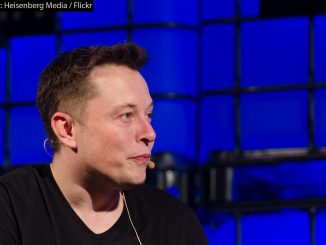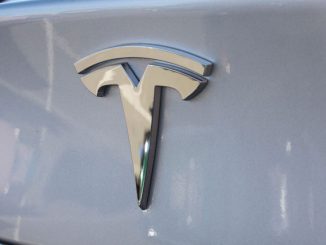Elon Musk on Friday showed off some of the technology his neural tech startup Neuralink has been developing. During a live-stream event at the company’s headquarters in Fremont, Calif., the tech entrepreneur presented a pig named Gertrude whose brain he says has been implanted with a coin-sized computer chip.
With a mind-reading gadget — 22.5 millimeters across and 8 millimeters thick — implanted into the skull of the animal, Musk demonstrated Neuralink’s technology to build a digital link between brains and computers. As Gertrude was snuffling around her pen on stage Friday night, a wireless link from Neuralink’s brain-computer interface showed the animal’s brain activity, revealing real-time neural network signals observed by the startup’s embedded tech.
“The beeps you’re hearing are real-time signals from the Neuralink in Gertrude’s head,” Musk said, describing the device as being like a ‘Fitbit’, which is a fitness tracking device usually worn on the wrist.
“It’s kind of like a Fitbit in your skull with tiny wires,” Musk said of the prototype, noting the US Food and Drug Administration in July granted Neuralink approval for “breakthrough device” testing.
Co-founded by the billionaire tech mogul in 2016, the startup aims to implant humans with their wireless brain-computer interface that connect to ultra-thin, flexible wires, containing a total of 1,024 electrodes. Those electrodes can theoretically read brain activity as they sens or stimulate the primary components of our nervous system, the neurons, all while transmitting information wirelessly.
Earlier this month Musk, whose other companies include Tesla and SpaceX, said that the chip “could extend range of hearing beyond normal frequencies and amplitudes” and even allow people to stream music directly to their brains while delivering “enhanced abilities” like greater reasoning and relief from anxiety.
The startup’s immediate goal, however, is to help cure paralysis, blindness and memory loss and other neurological diseases, though ultimately Musk hopes the technology will allow humans merge with software and compete with advancements in artificial intelligence (AI).
“Yes, this is increasingly sounding like a ‘Black Mirror’ episode,” Musk acknowledged during Friday’s demo. “You could upload, you could basically store your memories as a backup, and restore the memories, and ultimately you could potentially download them into a new body or a robot body”, he said. ”The future’s going to be weird.”
Musk reiterated his AI fears earlier this week, warning that at the current pace of development human intelligence risks being outsmarted by AI ”less than five years from now”.
Another reason for Friday’s live presentation was to recruit new talent to join Neuralink. Musk is expecting his company to expand from 100 employees to around 10,000.
It’s worth noting that Neuralink isn’t the only tech startup working on next-gen brain interfaces. Ventures/organizations like Synchron, BrainGate, and Seattle’s Center for Neurotechnology are also working toward a similar goal.
- Bulenox: Get 45% to 91% OFF ... Use Discount Code: UNO
- Risk Our Money Not Yours | Get 50% to 90% OFF ... Use Discount Code: MMBVBKSM
Disclaimer: This page contains affiliate links. If you choose to make a purchase after clicking a link, we may receive a commission at no additional cost to you. Thank you for your support!





Leave a Reply